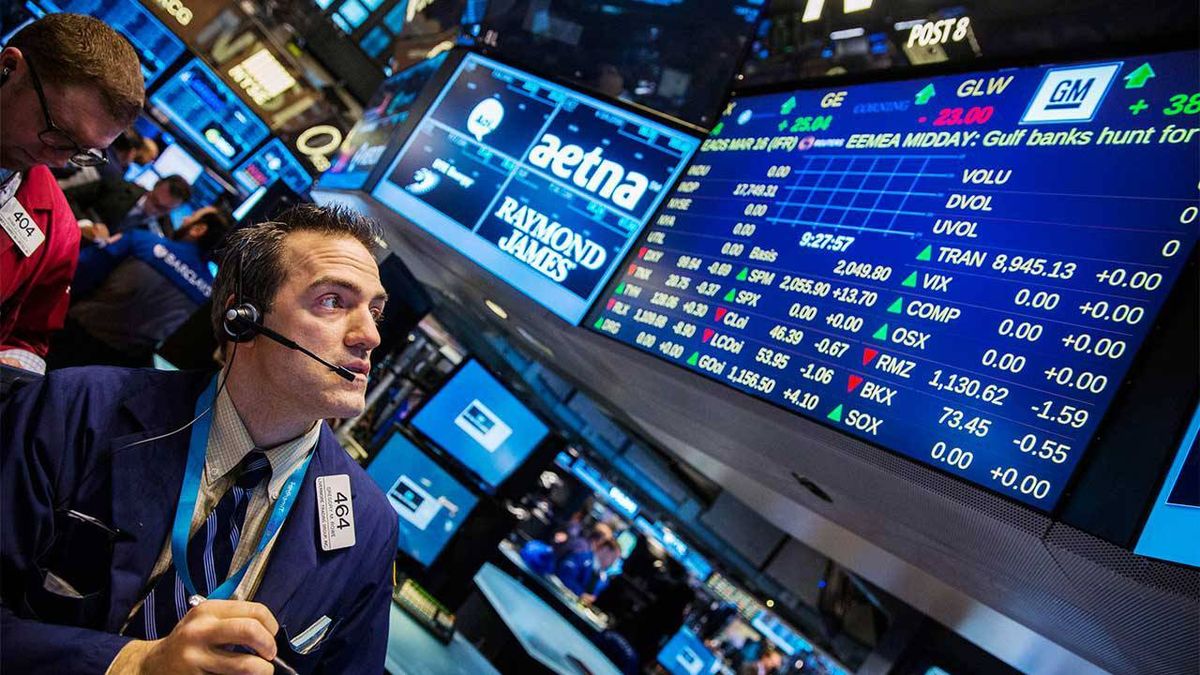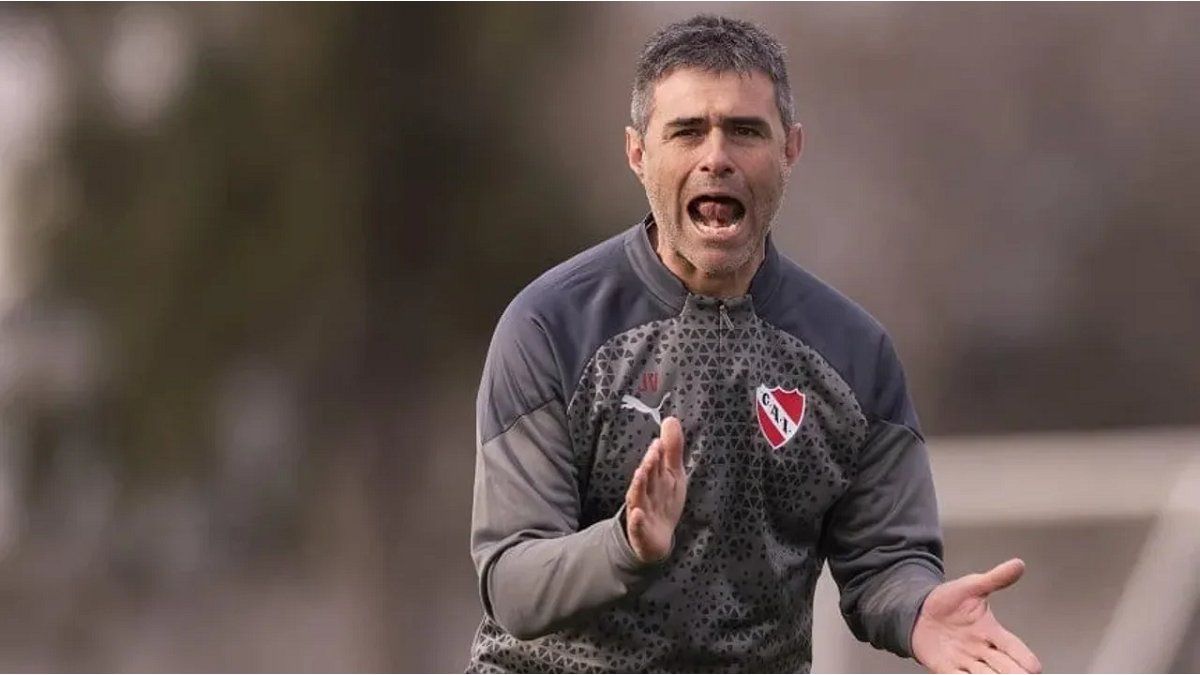After the United States holiday for the commemoration of Presidents’ Day, Wall Street reacts with falls of up to 1% as anticipated by the futures market. The Dow Jones Industrial Average fell 105.09 points, or 0.31%, to 33,974.09 while the S&P 500 fell 16.13 points, or 0.37%, to 4,332.74. The Nasdaq Composite fell 123.71 points, or 0.91%, to 13,424.36 at the open.
The situation between Russia and Ukraine remains very fluid and tensions remain high, so in the short term it will continue to be an obstacle to actions,” Sevens Report said in a note, emphasizing that the risk of a full-scale Russian invasion of Ukraine remains low.
Added to the pre-war conflict is concern over high inflation in the US and the eventual tightening of the Federal Reserve’s monetary policy, which injects fuel into investor nervousness.
The 10-year Treasury bond yield stood at 1.955%. By sectors, energy (0.81%) led the gains, followed by technology (0.25%) and communications (0.21%), while the largest losses were for non-essential goods (- 0.88%), essential goods (-0.64%) and raw materials (-0.5%)
european bags
After falling nearly 2% at the open, European markets manage to reverse the trend and rise up to 1%. In the mid-session, the national index already manages to turn upwards and recover the level of 8,500 points. European stock markets are recovering from the blow caused by Russia’s recognition of two provinces in Ukraine and the possible deployment of troops in both regions. After trading around 8,350 pointsthe Ibex 35 minimizes the fall and rises 0.9%.
The European Union (EU) proposed this Tuesday to block Russian authorities from accessing the bloc’s markets and financial services and sanctioning banks that finance military operations in separatist areas of Ukraine, according to a statement from the Commission and the European Council.
In a joint note, the two institutions declared themselves in favor of sanctions against “those who are involved” in the recognition of the independence of the two breakaway regions of Ukraine, a gesture they considered “illegal and unacceptable.” The package of sanctions will be proposed and analyzed this Tuesday by European foreign ministers in Paris. Sanctions must be approved by all 27 EU member states before they can be applied.
In the statement released this Tuesday, the EU leaders pointed out that the institution “has prepared and is ready to take additional steps at a later stage if necessary in light of new developments.”
russian bag
Yesterday, the Moscow Stock Exchange suffered its worst crash in almost 14 years this Monday, sinking more than 13%, while the ruble lost more than 2% and exceeded 79 units per dollar, in the face of the greatest fear in the West for Russia to invade Ukraine. For today, the main MOEX and RTSI indices reverse trend and rise up to 1.5%.
The ruble, the Russian national currency, also suffered the impact of geopolitical tensions and this morning it was trading above 80 units per dollar, its lowest value since 2016.
The Central Bank of Russia (BCR) assured today that it monitors the evolution of the financial market and is prepared to take “all measures” to maintain financial stability in the country, after the impact on the stock market of the recognition of the pro-Russian separatists and the sending Russian troops to Donbas. “The Bank of Russia monitors the development of the situation on the financial market and is ready to take all necessary measures to maintain financial stability,” it said in a statement.
asian bags
Asian stocks fell as much as 3%. Hong Kong stocks fell 2% and Tokyo fell more than 2%, while Shanghai, Sydney, Seoul, Taipei and Bangkok lost more than 1%. Losses were also recorded in Singapore, Manila, Jakarta and Wellington. “It’s a fluid situation because of the changing geopolitical issues we have,” said Chris Weston of Pepperstone Financial Pty.
Raw Materials
Oil hit its highest price since 2014 on Tuesday amid concerns about supplies. This situation raised the price of a barrel to US$100. “The potential for a rally above $100 a barrel has received a huge boost,” said Tamas Varga of oil brokerage PVM. “Those who have bet on such a move anticipated the escalation of the conflict.”
Brent crude rose $3.38, or 3.5%, to $98.77, after hitting $99.50, its highest level since September 2014. West Texas Intermediate crude ( WTI) from the United States was up $4.40, or 4.8%, to $95.47 from Friday’s close, after touching $96, also a high not seen since 2014.
As for gold, prices fell on Tuesday from their highest level since June, but escalating tensions in Eastern Europe could maintain momentum due to strong demand for haven assets. Spot gold was down 0.5% at $1,895.76 an ounce, after spiking earlier in the session to a high not seen since June 1 at $1,913.89 an ounce. US gold futures were up 0.1% at $1,901.70 an ounce.
“There was a lot of doom and gloom ahead of the European open. Equity markets opened significantly lower and while we are still in the red on the day, a lot of those losses have narrowed,” said Michael Hewson, market analyst at CMC Markets UK. .
However, “geopolitical concerns could lead central banks to slow down the pace of their monetary tightening cycle, and that in itself is likely to be positive for gold,” Hewson said. While bullion is seen as a hedge against inflation and geopolitical risks, increases in interest rates tend to raise the opportunity cost of holding gold as an investment.
In metals, nickel prices climbed to their highest level in more than a decade as low inventories, demand from electric vehicle battery makers and supply concerns from Russia fueled purchases. Benchmark nickel on the London Metal Exchange (LME) was up 0.8% at $24,335 a tonne, having previously hit $24,610 a tonne, the highest level since August 2011.
“There will be a risk premium for nickel given the potential for disruptions from Russia and inventories are low,” said Wenyu Yao, an analyst at ING. “Strong electric vehicle sales in China continue to drive shortages of nickel,” needed to make nickel sulfate. The possibility that Western powers will issue heavy sanctions on Russia if it invades Ukraine has raised alarm over supplies from the country, which accounted for around 10% of global mining output last year.
Source: Ambito
David William is a talented author who has made a name for himself in the world of writing. He is a professional author who writes on a wide range of topics, from general interest to opinion news. David is currently working as a writer at 24 hours worlds where he brings his unique perspective and in-depth research to his articles, making them both informative and engaging.




